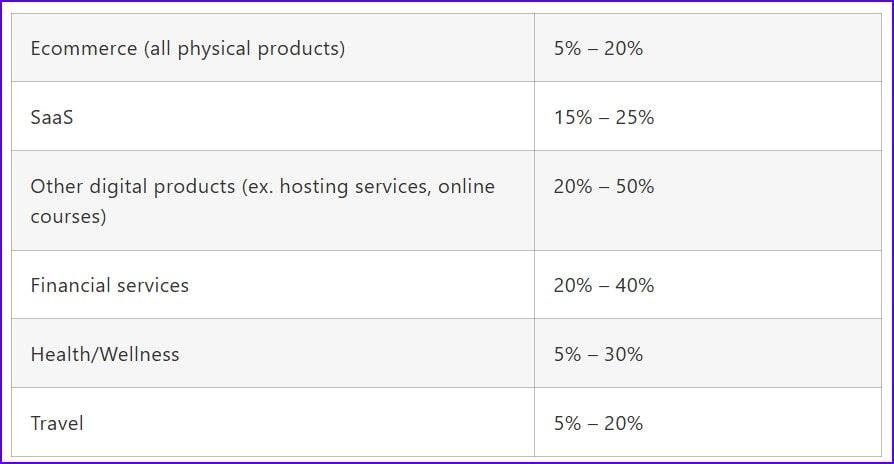Wondering if you can actually make money promoting other people’s products online? You’re not alone.
Every day, thousands of people search for answers about affiliate marketing’s legitimacy while scrolling past Instagram posts showing marketers with their fancy cars and tropical vacations. It’s hard to separate hype from reality.
Is affiliate marketing legit or just another internet scam?
In this article, I’ll cut through the noise and examine what affiliate marketing really is, how it works, whether it’s a legitimate way to earn income online, and how to avoid affiliate marketing scams.
Is affiliate marketing legit?
You’ve probably seen those social media posts where someone claims to make thousands of dollars each month by simply sharing links online. It sounds too good to be true, right?
So, if you are wondering, ‘Is affiliate marketing a scam?’ here’s some good news: affiliate marketing is indeed legitimate. But it’s not the effortless cash machine many make it out to be.
Affiliate marketing is straightforward in concept: you earn commissions by promoting other companies’ products or services. When someone purchases through your unique affiliate link, you get a percentage of the sale.
Major companies like Amazon, Shopify, and REI all run affiliate programs, paying out millions to partners monthly. This widespread adoption by established businesses is one strong indicator of the model’s legitimacy for anyone questioning ‘Is affiliate marketing legit?’
On the other side of the equation are affiliates. Pat Flynn from Smart Passive Income demonstrates what’s possible when done right. He earns over $100,000 monthly, primarily promoting web hosting services like Bluehost and educational tools he personally uses.
His success didn’t happen overnight, though. It took years of building trust with his audience, often by being transparent about his earnings through published monthly income reports.
The most successful affiliate marketers focus on authenticity first. Michelle Schroeder-Gardner of Making Sense of Cents generates approximately $50,000 monthly promoting financial products and courses.
But she began simply as a personal finance blogger sharing her journey of paying off student debt. The affiliate income came after she’d built credibility with her audience.
The reality is that while affiliate marketing is legit, it isn’t a get-rich-quick scheme. According to PayScale data, the average affiliate marketer earns around $56,141 annually. Not the millions some promoters promise.

Besides that, affiliate marketing can be incredibly hard and competitive, depending on the niche and products you pick, not to mention the various affiliate marketing scams you’ll have to be careful of.
In fact, Awin, one of the largest affiliate networks, reports that 85% of new affiliates fail within their first year because they underestimate the work involved in building an audience and creating valuable content.
Sarah Titus, for example, built a $7 million Shopify store selling printables, partially through affiliate marketing. But before reaching success, she spent months creating content that generated no commissions.
Based on studying hundreds of businesses that utilize affiliate marketing, I strongly recommend choosing products you genuinely use and believe in—authenticity drives conversions. And choosing a niche that has high demand and low competition.
Focus on building an audience first through valuable content rather than leading with promotions. Be transparent about your affiliate relationships, as this builds the trust necessary for long-term success.
Don’t expect overnight results; most successful affiliates I’ve researched took 1-2 years to generate significant income. Diversifying your affiliate partnerships is also wise, as it creates multiple income streams and protects against program changes.
Affiliate marketing is legit when done ethically. It’s a real business model used by major companies worldwide and can be very profitable with the right approach.
However, like any business, it requires work, patience, and strategy. The stories of overnight riches are largely exaggerated, but with consistent effort focused on providing value to your audience, it can become a viable income source.
Remember: if someone promises you instant wealth through affiliate marketing with minimal effort, that’s the real scam—not affiliate marketing itself.
Why does affiliate marketing attract so many scammers?
While it’s incorrect to say that affiliate marketing is a scam, the industry does attract scammers because of its low entry barriers and potential for high profits. You don’t need much technical knowledge or startup capital to claim you’re an affiliate marketing guru.
The promise of passive income creates perfect conditions for scams in affiliate marketing. When some John Doe of “Affiliate Mastery” sells $2,000 courses claiming you’ll make $10,000 monthly within 60 days, he’s exploiting your desire for financial freedom.
In reality, legitimate affiliate marketers like Michelle Gardner from Making Sense of Cents took years of consistent content creation before reaching significant income levels.
Many scammers operate through tiered schemes. Take David Harris’s “Affiliate Launchpad” program that charges $497 upfront but primarily earns money when you promote his program to others. This creates a pyramid-like structure where only those at the top profit substantially.
The digital nature of affiliate marketing makes verification difficult, leading to questions like ‘Is affiliate marketing legit?’ Unlike purchasing physical products, it’s harder to determine if an affiliate course or system delivers results before investing.
When ClickBank marketplace data shows that 90% of digital products have refund rates above 40%, you can see why caution is necessary.
From my research, legitimate affiliate marketers focus on building value first, not promising overnight riches.
To avoid affiliate marketing scams, look for affiliates who are transparent about earnings, disclose relationships with merchants, and focus on helping you solve problems rather than making extravagant promises about wealth.
How to avoid affiliate marketing scams
Affiliate marketing can be a legitimate way to earn income online, but the industry attracts its share of scammers looking to exploit eager marketers.
Knowing how to identify red flags before investing your time and reputation is crucial to building sustainable partnerships.
Trust your gut when offers seem too good
Initial impressions matter in affiliate marketing. When a program promises exceptional rewards with minimal effort, it often signals potential problems.
Here are some typical affiliate commission rates, according to data from different sources.

Evaluate whether commission rates align with industry standards for similar products to steer clear of scams in affiliate marketing.
When Thailand-based dropshipper SiamStyle promised 75% commissions with “guaranteed approval for everyone,” many affiliates discovered their tracking codes mysteriously “malfunctioned” on higher-value sales.
Verify the company exists and is legitimate
While affiliate marketing is legit, you should always investigate a company’s background before promoting their products. Check business registrations, physical address legitimacy, and the digital footprint of key personnel.
Look for established history and confirm that they actually sell the products they claim.
In 2023, “TechBoost Software” recruited hundreds of affiliates before they discovered the company had no actual office at their London address and their executives’ LinkedIn profiles were created just months earlier.
To learn more, check out this article on evaluating a business’s legitimacy.
Watch for red flags
Several warning signs can help you identify potential affiliate marketing scams. Be wary of programs that pressure you to pay upfront fees – legitimate ones rarely charge to join.
Question programs with vague product details or impossible commission structures that exceed industry norms. California-based “MetaGrowth Network” charged affiliates $299 for “premium access” before disappearing entirely.
Always check for proper contact information and insist on a written agreement that clearly outlines all terms.
Examine payment terms carefully
Understanding payment structures is crucial to avoid affiliate marketing scams. Check minimum payout thresholds, payment schedules, and any clawback policies.
Be particularly vigilant about extended holding periods or complex qualification requirements.
Brazilian fashion marketplace Moda Express had affiliates raving until many noticed the fine print: commissions were only paid after customers’ 90-day return window closed, and any returned items resulted in commission clawbacks.
Check their tracking technology
Reliable tracking ensures you receive credit for every referral. Established programs typically use recognized third-party tracking platforms that provide transparency and reliability.
While affiliate marketing is legit, you should be cautious of proprietary systems without verification options. When fitness company GymGear promised “proprietary advanced tracking,” affiliates later discovered sales were being significantly underreported compared to their own link-tracking data.
Research existing affiliate experiences
Before committing, search for feedback from current and former affiliates to check for possibilities of affiliate marketing scams. Forums, review sites, and social media groups often reveal patterns of problematic behavior not mentioned in promotional materials.
When Canadian supplement company NutriPrime launched with “revolutionary commission structures,” a quick search would have revealed numerous complaints about delayed payments from their previous brand iterations.
Start small and test the system
Begin with limited promotion to verify the program functions as promised. Track conversions through multiple methods to cross-verify the company’s reporting accuracy.
Final thoughts on legitimacy of affiliate marketing
Legitimate affiliate programs from companies like REI, ConvertKit, or Shopify succeed because they offer reasonable commissions, clear terms, established tracking, and prompt payments.
By thoroughly researching opportunities and remaining vigilant about warning signs, you’ll never have to question ‘Is affiliate marketing legit?’ This way, you can build profitable affiliate relationships while avoiding the scammers who give this industry a bad name.
Did I miss anything? Did you try these tips on avoiding affiliate marketing scams? Do you have any questions or comments? Share your thoughts below in the comments section.


